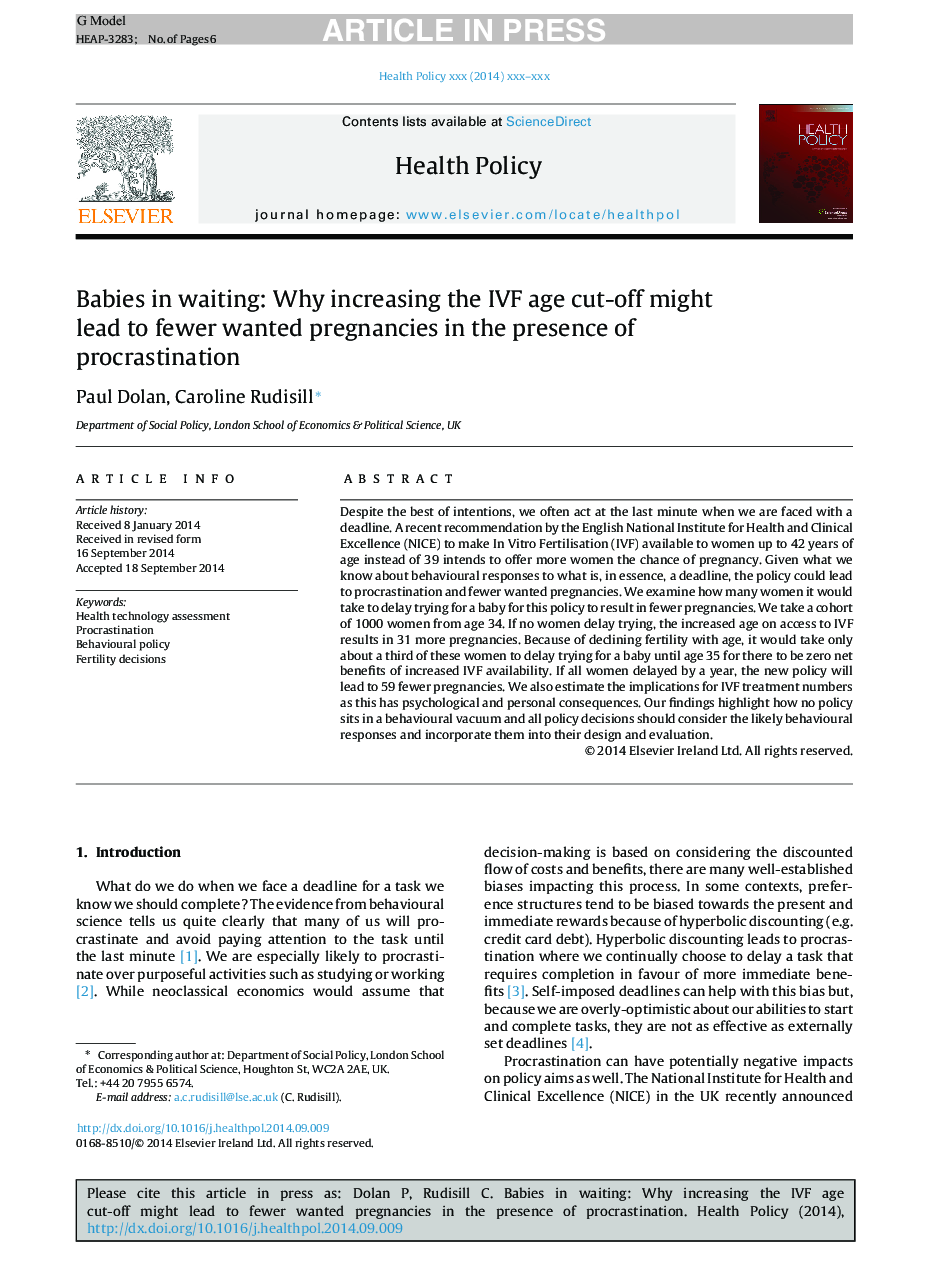| Article ID | Journal | Published Year | Pages | File Type |
|---|---|---|---|---|
| 6239432 | Health Policy | 2015 | 6 Pages |
Abstract
Despite the best of intentions, we often act at the last minute when we are faced with a deadline. A recent recommendation by the English National Institute for Health and Clinical Excellence (NICE) to make In Vitro Fertilisation (IVF) available to women up to 42 years of age instead of 39 intends to offer more women the chance of pregnancy. Given what we know about behavioural responses to what is, in essence, a deadline, the policy could lead to procrastination and fewer wanted pregnancies. We examine how many women it would take to delay trying for a baby for this policy to result in fewer pregnancies. We take a cohort of 1000 women from age 34. If no women delay trying, the increased age on access to IVF results in 31 more pregnancies. Because of declining fertility with age, it would take only about a third of these women to delay trying for a baby until age 35 for there to be zero net benefits of increased IVF availability. If all women delayed by a year, the new policy will lead to 59 fewer pregnancies. We also estimate the implications for IVF treatment numbers as this has psychological and personal consequences. Our findings highlight how no policy sits in a behavioural vacuum and all policy decisions should consider the likely behavioural responses and incorporate them into their design and evaluation.
Related Topics
Health Sciences
Medicine and Dentistry
Public Health and Health Policy
Authors
Paul Dolan, Caroline Rudisill,
